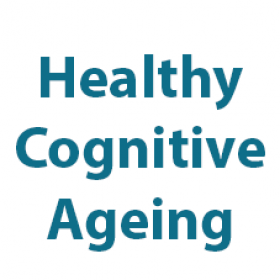Our Research - Healthy Cognition in Ageing

There are many facets of cognition that have an impact on how healthy we stay as we get older. Likewise, there are many environmental influences on cognitive ability and cognitive ageing. These can be studied in both human and animal subjects.
Edinburgh is a world leader in Cognitive Epidemiology (the study of causes and consequences of cognitive health across the human lifecourse) through longitudinal large-scale epidemiology, data linkage and omics studies, such as the Lothian Birth Cohorts and Generation Scotland. These cohorts contain some of the world’s largest epigenetic and proteomic resources (genome-wide data on 20,000 individuals) and longitudinal cognitive, brain imaging, and epigenetic data across the 8th and 9th decades, alongside measures from across the life course including childhood cognitive ability and socioeconomic circumstances. Researchers also integrate these studies with other large data resources such as UK Biobank, and with large international genetics consortia such as CHARGE and ENIGMA, to understand the factors that might underpin brain and cognitive ageing differences.
Other key areas of research include studies that show how semantic memory – the meaning of words – stays relatively unchanged or even increasing through life, until very late, whereas working and episodic memory tend to decline as people get older. But as we are all aware – individuals can differ a lot, with some remaining sharp until late in life while others show an earlier decline in cognition. What happens in the brain in terms of maintenance of connectivity, cell and synaptic function, and the underlying brain biochemistry is less well understood but research around the world, including in Edinburgh, is giving us an insight into the gradual changes in cell activities, numbers and effective connectivity that mediate diverse facets of cognition. Inevitably, a major focus here is on memory.
Research
- Characterising cognitive, proteomic, transcriptomic, epigenetic, and brain imaging changes in the Lothian Birth Cohorts (~1,500 volunteers who have been followed-up every 3 years from ages 70 – 95 years with childhood cognitive ability measures from age 11).
- Understanding multi-morbidity through retrospective and prospective data linkage to electronic health records, multi-omics, and cognitive test data in 20,000 individuals aged 18-99 years at baseline in Generation Scotland.
- Research on the underlying mechanisms of episodic-like memory with a focus on the selectivity of memory retention.
- Understanding how specific memories, once formed, can become assimilated into our knowledge base and mental schemas.
- Research on prior experiences and mechanisms in preventing memory decline in early cognitive aging.
- Investigating the role of activity-dependent synaptic plasticity in learning and memory.
This research is funded through major awards from the Medical Research Council, Age UK, the Wellcome Trust, the Royal Society, the Simons Foundation, Biotechnology and Biological Sciences Research Council, Alzheimer’s Research UK, the Alzheimer’s Society, the NIH, and other funders.
Teaching and Training
Healthy Cognition in Aging is a major feature of an advanced undergraduate course called “The Neurobiology of Cognition in Health and Disease” led by Professors Tara Spires-Jones, Richard Morris and Barry McColl. This takes students through basic mechanisms and on to how they affect cognition through the lifespan and as age-related neurological conditions develop (such as Alzheimer’s Disease).
University researchers who work in this area include:
- Dr Simon Cox
- Dr Riccardo Marioni
- Professor Richard Morris, FRS
- Professor Tara Spires-Jones
- Dr Szu-Han Wang
Useful weblinks

